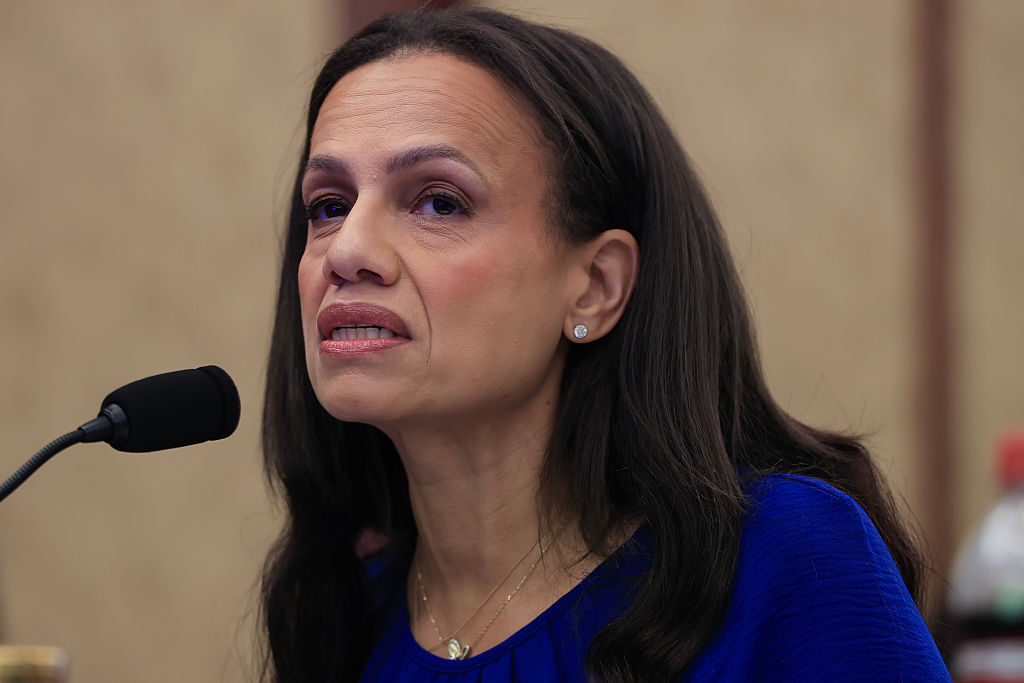Donald Trump has been on full offense in the run up to next week’s midterms. The latest front he’s opened with Democrats is over ‘birthright citizenship,’ the practice of awarding citizenship to almost anyone who happens to the born in US territory, regardless of the parents’ allegiance. Liberals insist that the 14th Amendment guarantees this method of making citizens; conservatives take a more restrictive view of the amendment’s language, which recognizes the citizenship of ‘All persons born or naturalised in the United States, and subject to the jurisdiction thereof…’ Are children born to illegal immigrants, for example, subject to US ‘jurisdiction’ in the every sense?
The Supreme Court ruled in the 1898 case United States v. Wong Kim Ark that this applies to the children of legal permanent residents, but liberals take a more expansive view than that. And President Trump might very well take a more restrictive one. What exactly he could do by executive order remains to be seen: he has said he can revise birthright citizenship without getting Congress involved. House Speaker Paul Ryan disagrees, and Sen. Lindsey Graham says he will introduce legislation to accomplish what the president wants. Opponents say that Congress has no more power than the president to alter birthright citizenship, short of amending the 14th Amendment. But liberals can’t be too confident about how the new Supreme Court majority, including Brett Kavanaugh, would rule if the justices were to hear a challenge to a law restricting birthright citizenship.
The left is outraged as always, and the right is energised — but in the short term, nothing is likely to happen. An executive order would be a risky strategy for taking on birthright citizenship; a law passed by Congress would have more chance of surviving review by the courts. But Congress will not act quickly, if at all, and Republicans will quite probably lose their House majority in the midterms next Tuesday. A lame-duck Republican House with Paul Ryan as its speaker would not be apt to take up the matter before a new majority is seated in January. And even if the GOP holds onto the House, a razor-thin Republican majority would not be very likely to do the job. If the president does simply issue an executive order, however, even a conservative Supreme Court might view it with skepticism, and an unfavorable ruling would make going back to Congress later more difficult or outright impossible. A constitutional amendment to revise the language of the 14th Amendment is a prospect so remote as to be unimaginable at present. Birthright citizenship will only be changed if the Supreme Court decides that the president or Congress has the authority to narrow its interpretation.
Yet Democrats face a difficulty, too: their broad interpretation of the 14th Amendment is not a winner with the American public. The issue could well help Trump win a second term in 2020 and contribute to Republicans regaining the House, if they lose it after next week. Birthright citizenship was safe as long as it was not a topic for partisan campaigning. As with many policies of fateful consequence for the nation, this one was simply accepted by the bipartisan elite and went politically unchallenged — until now. Democrats will henceforth have to make the case for it to a public that still insists on distinctions between citizens and aliens, and between the legal and illegal varieties of the latter. There is a national security dimension here as well: foreign nationals who come to the US for the express purpose of giving birth can thereby acquire for their children the privileges of American citizenship even if their loyalties are entirely to their homeland.
Other immigration policies are complicated by birthright citizenship: Republicans are more reluctant than they would otherwise be to accept guest-worker programs, such as those proposed by the George W. Bush administration, if the children born to guest workers are automatically citizens. Birthright citizenship at least partly undercuts the ‘guest’ side of ‘guest workers.’ Democrats, on the other hand — who hope to acquire the votes of new citizens who are mostly poorer than children born to existing citizens and who are often attached to Democratic-leaning ethnic blocs — have every incentive to see the 14th Amendment’s birth-citizenship clause interpreted as liberally as possible.
Partisan dynamics aside, however, Americans generally want to control immigration and frown upon attempts to award citizenship to those who circumvent the naturalisation process. There is a fundamental, common-sense expectation as well that to be an American citizen should entail a presumptive allegiance to America. Birthright citizenship for the children of illegal immigrants or birth tourists involves neither the citizen-forming process of naturalisation nor the civic ties that come from having citizen parents. Donald Trump has put to the American people a question that liberals would have preferred to leave to the few. But today, even the nine justice of the Supreme Court may not be few enough to guarantee the most expansive interpretation of birthright citizenship survives.

























